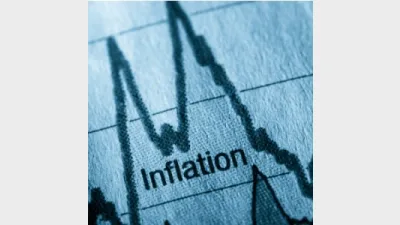Will inflation be higher for longer?



The inflation environment will be much higher than pre-COVID levels over the next two to five years despite pockets of deflation, according to AMP Capital.
Speaking at an Institute of Managed Account Professionals (IMAP) webinar, Diana Mousina, AMP Capital senior economist, said inflation was unlikely to normalise around the pre-covid 2% level despite some deflation in areas such as the goods sector.
“Over the next few years, we think we'll get these periods of high inflation like we have at the moment and then actually next year we see the risk of deflation in some parts especially in a good sector as you get this oversupply of goods from very high production,” Mousina said.
“Now, companies have got used to high demand from consumers over the past few years and inventories look to be rising quite a lot.
“And if we're right, that consumer demand will slow quite significantly, and you could see an over build of inventories. There are already signs of that happening and you could see pockets of deflation.”
This would result in “periodic spikes up and down”, especially over the next one to two years due to distortions created by the pandemic.
“But we are of the view that the next two to five years, maybe even longer than that, the inflation environment will be much higher compared to pre-COVID.”
She said inflation would not head toward pre-pandemic levels of 2% as there were signs within the last few years that globalisation had reached a peak.
“Global trade in terms of the import and export share of GDP looked like it was already reaching a peak and now companies are deciding to either onshore or even nearshore which is just having a manufacturing supply chains somewhere close by.
“But it will still generally mean that inflation will be higher compared to finding the lowest cost producer in the world,” she said.
Another reason for a higher normalised inflation range was that government budgets looked to be running at a much higher level than where they were before COVID, according to Mousina.
“That normally tends to be inflationary. The ratio of workers to older population has declined as the population is ageing and normally that tends to be inflationary as well.
“So there are some signs that inflation will be higher over the next few years, even though in the short term we might have some of these weird things going on in the data just because of the pandemic distortions, but that won't continue forever.”
Recommended for you
Australian equities manager Datt Capital has built a retail-friendly version of its small-cap strategy for advisers, previously only available for wholesale investors.
The dominance of passive funds is having a knock-on effect on Australia’s M&A environment by creating a less responsive shareholder base, according to law firm Minter Ellison.
Morningstar Australasia is scrapping its controversial use of algorithm-driven Medalist ratings in Australia next year and confirmed all ratings will now be provided by human analysts.
LGT Wealth Management is maintaining a neutral stance on US equities going into 2026 as it is worried whether the hype around AI euphoria will continue.











